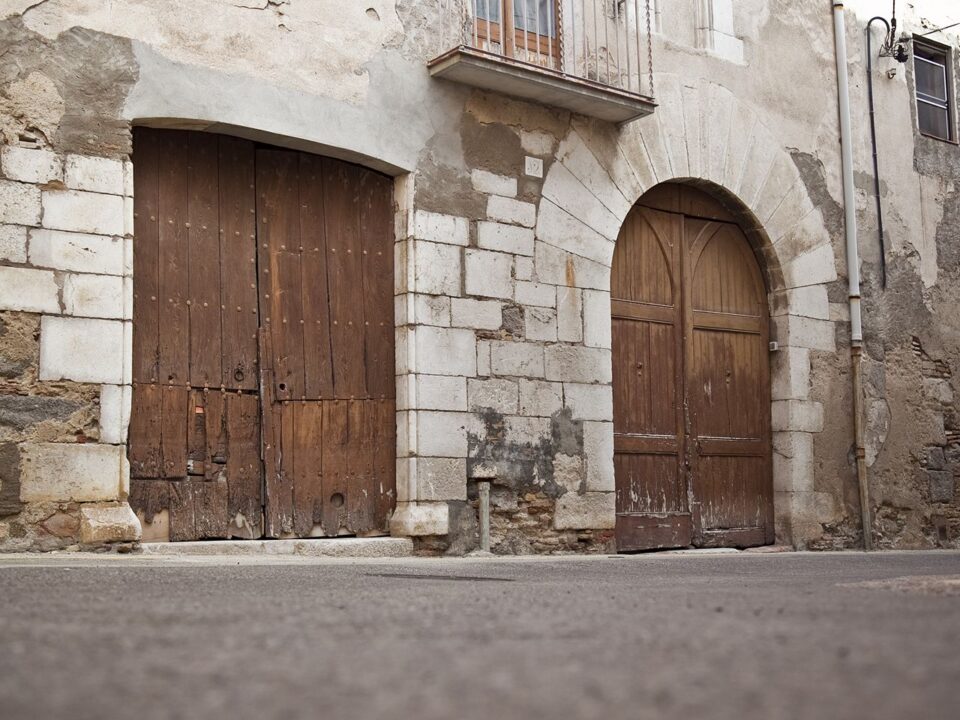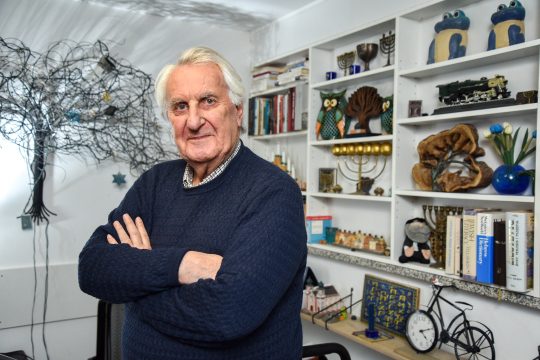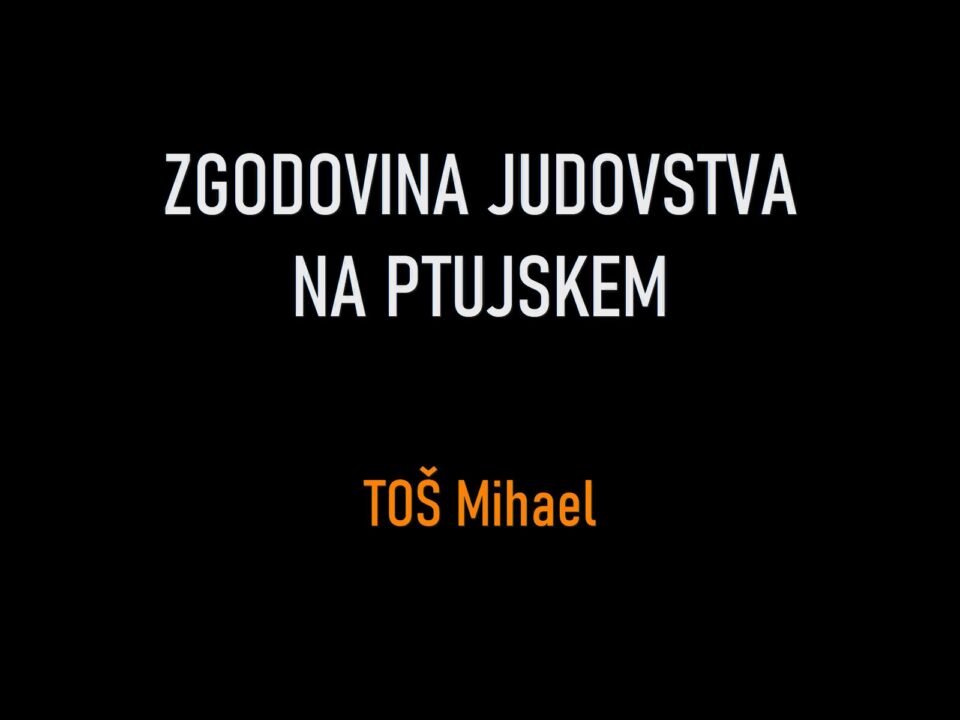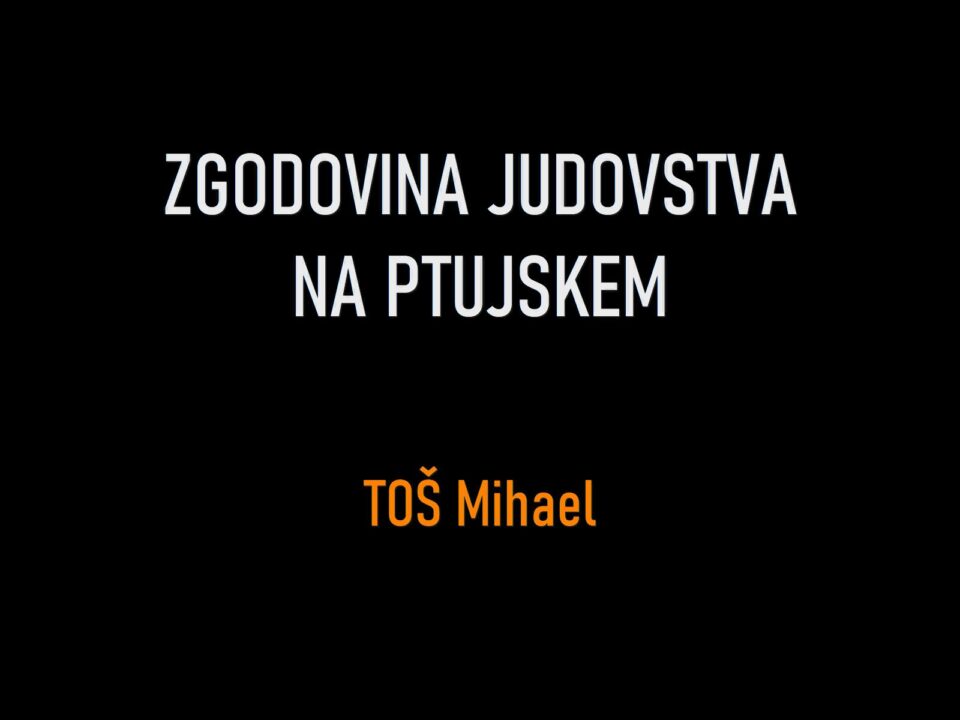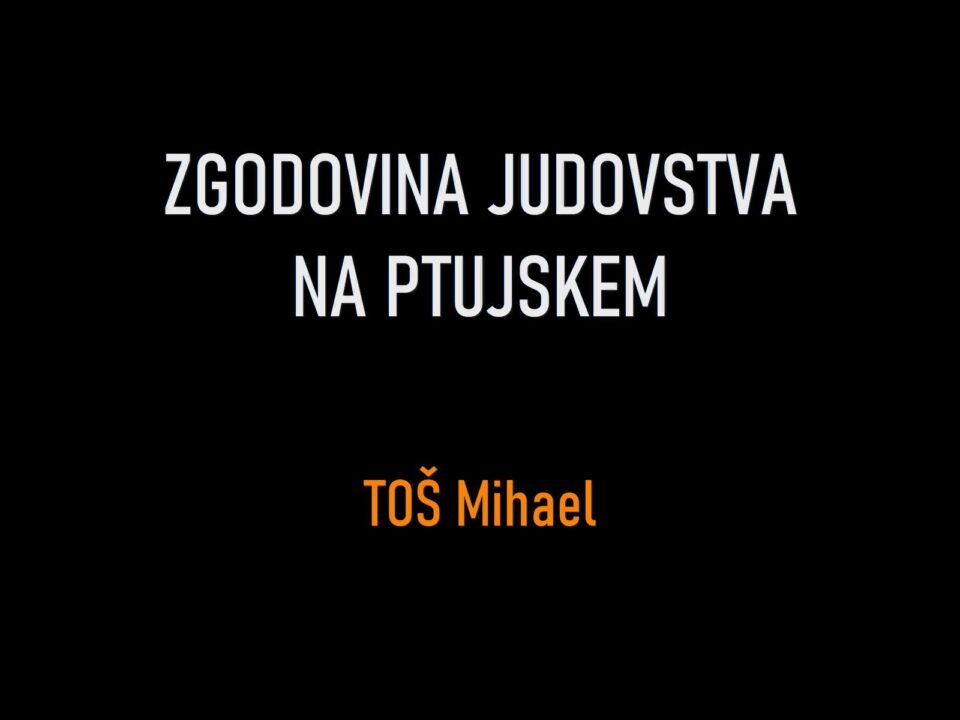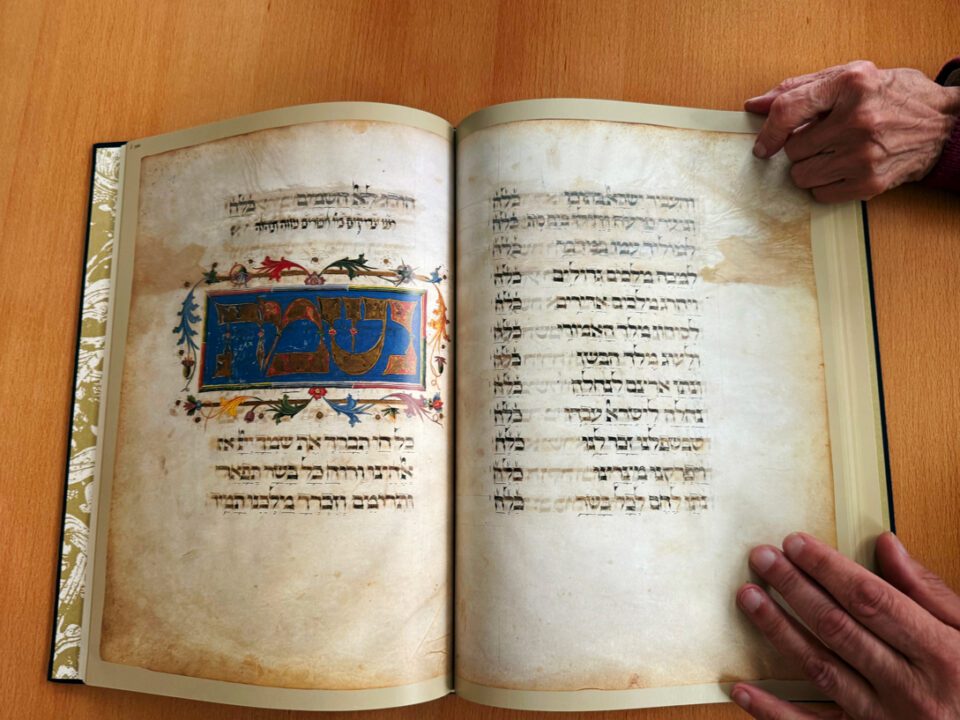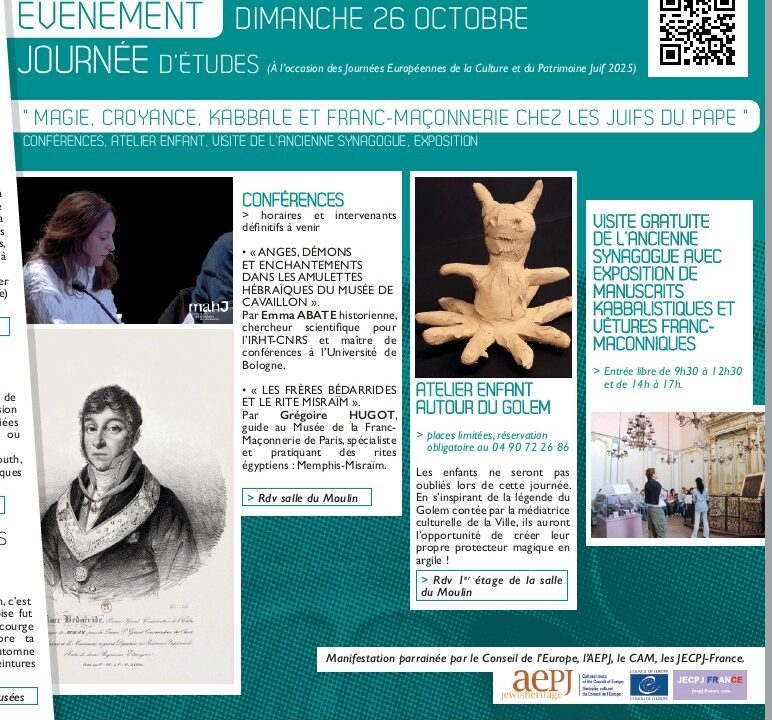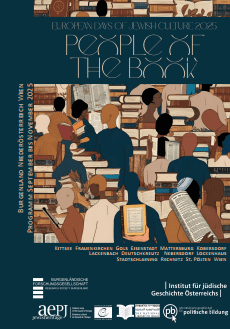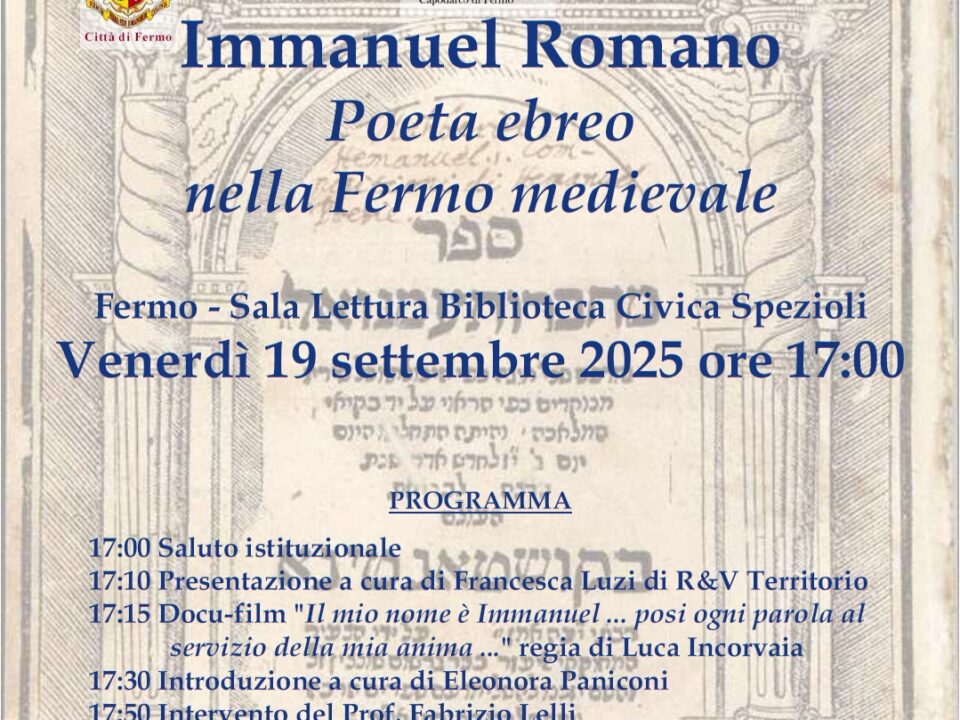La historiadora local, Ariadna Comas Leira, ens oferirà una conferència per presentar els resultats del seu treball d'investigació entorn la Sinagoga del Puig del Mercadal de Castelló d'Empúries. Serà el dissabte 6 de setembre, a les 19.30 h, a la Capella del Convent de Santa Clara.
Activitat gratuïta.
No cal reserva prèvia.
La historiadora local, Ariadna Comas Leira, ens oferirà una conferència per presentar els resultats del seu treball d'investigació entorn la Sinagoga del Puig del Mercadal de Castelló d'Empúries. Serà el dissabte 6 de setembre, a les 19.30 h, a la Capella del Convent de Santa Clara.
Activitat gratuïta.
No cal reserva prèvia.
The Man Who Is Not There, a literary event with Branko Šömen. The event will be hosted by Benjamin Langner.
Writer, screenwriter, publicist and poet Branko Šömen has collected six short stories in a new book and titled them after his award-winning ballad The Man Who Is Not There, which was sung by Majda Sepe during the golden age of Slovenian pop music. The opening short story is dedicated to a recently deceased friend, and the other short stories are also marked by mortality. They are set in different places and times: in Jerusalem, the distant heroic history of the Knights Templar, the time of Mozart and post-war Slovenian history. The book was published by the publishing house Mladinska knjiga Založba.
Judaism in Ptuj, lecture by Mihael Toš
At the forth lecture by Mihael Toš, author of the Kein Kampf project, visitors will be able to learn more about the history of Judaism in Ptuj through the centuries, with special attention being paid to the former Jewish synagogue and its fate.
Judaism in Ptuj, lecture by Mihael Toš
At the third lecture by Mihael Toš, author of the Kein Kampf project, visitors will be able to learn more about the history of Judaism in Ptuj through the centuries, with special attention being paid to the former Jewish synagogue and its fate.
Judaism in Ptuj, lecture by Mihael Toš
At the first lecture by Mihael Toš, author of the Kein Kampf project, visitors will be able to learn more about the history of Judaism in Ptuj through the centuries, with special attention being paid to the former Jewish synagogue and its fate.
All day from 11:30 a.m.
Book market, coffee, cake, and cold drinks
Refreshments will be provided. Our book market offers interesting books on Jewish history and culture.
12:00 p.m. – 1:00 p.m.
Guided tour of the exhibition and synagogue – Jewish life in the countryside
Family history – religious practice – everyday history
2:00 p.m. – 2:30 p.m.
Henri Friedlaender – calligrapher and typographer
Lecture by Alexander Schmalz
Henri Friedlaender was born in Lyon in 1904. His mother was English, his father German. He completed an apprenticeship in graphic design in Berlin and passed his master's examination in hand typesetting in Leipzig. He initially worked as a hand typesetter, then as a typographic designer and finally as head of the letterpress typesetting department.
Magic, Belief, Kabbalah, Freemasonry among the Pope’s Jews
Sunday, October 26, 2025
The Heritage and Museums Department of Cavaillon presents a thematic day exploring mysticism, Kabbalah, and Freemasonry among the Pope’s Jews. This unique program highlights the city’s rich Jewish heritage, including one of the oldest synagogues in France, and its history as a cradle of intense Masonic activity. Notably, the Bédarrides brothers established the first French lodge of the Misraïm rite here, reflecting the deep scholarly and mystical traditions of the local Jewish community.
Visitors will discover historical, sociological, ethnological, and cultural insights into Jewish magic and spirituality, including Aramaic Kabbalah books and Hebrew amulets preserved in the synagogue’s genizah. Children participate in a hands-on workshop to create their own lucky amulets, guided by a cultural mediator.
The “Anschluss” of 1938 as a Rupture for Jews Residing Beyond the Large Jewish Communities
Municipality of Großwarasdorf
The annexation of Austria to the German Reich in March 1938 marked a decisive turning point for all Jews in Austria. In Burgenland, expulsions and discriminatory measures began immediately, targeting not only the well-documented larger Jewish communities, but also small villages where just one or two Jewish families lived. These smaller communities, often overlooked in historical accounts, were equally affected by persecution and expulsion.
This event in Großwarasdorf, representative of many Burgenland villages, will shed light on the fate of Jews living outside the major communities. Historian Michael Schreiber will present a lecture tracing their lives before and after the “Anschluss,” illustrated by the case of Großwarasdorf and its surroundings.
Immanuel Romano. Poeta ebreo della Fermo medioevale
Organizer: Municipality of Fermo
For several years, the association R&V Territorio o.d.v. has been carrying out in-depth research on the Jewish community of Fermo, which played a particularly important role in the early Middle Ages. Among its most remarkable figures was Immanuel Romano (Immanu’el ben Šelomoh ha-Romi), an eminent Jewish poet of the 13th–14th centuries. Both a witness to and a protagonist of his time, he contributed to one of the most creative periods in cultural history: the birth of the Italian literary language.
This event will explore Romano’s life and works through lectures, performances, and guided tours, bringing to light the Jewish contribution to the development of Italian and European identity.
Program
-
Book presentation: Immanuel Romano: Jewish Poet in Medieval Fermo (edited by Stefano Degli Esposti, Claudia Colletta, and Eleonora Paniconi, published by R&V Territorio o.d.v.)

